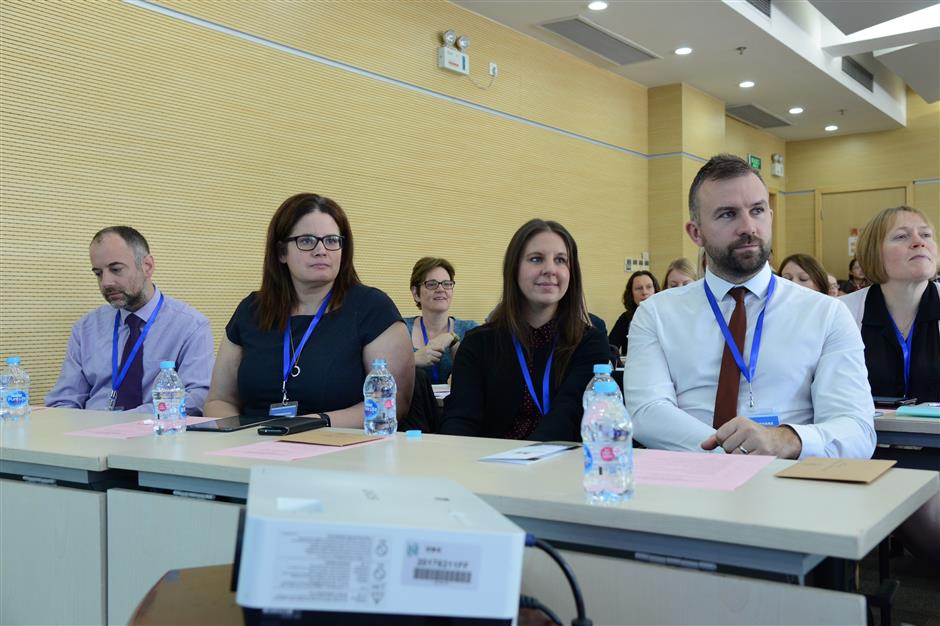Shanghai math counts in British schools

British math teachers in Shanghai.
In what has often been described as a golden age of Sino-UK relations, one of the brightest lights is the vibrant exchange of math teachers.
The UK department of education and Shanghai education commission signed a memorandum of understanding yesterday to kick off the third round of exchange, now including secondary schools.
This time, 86 primary school teachers from England will spend eight days in local schools, learning the Shanghai math approach and observing how teachers deliver the curriculum. A similar number of Shanghai teachers will visit the UK in January next year to demonstrate the methodology with English kids.
In September 2010, UK’s National College for Teaching and Leadership signed an agreement with Shanghai Normal University on teacher training. The UK sent 50 teachers to Shanghai in 2013 and 2014 for short-term training, while a delegation of Shanghai teachers visited the UK in 2013.
The Shanghai approach is supported by well-crafted mathematical models and problems, as well as practice materials that focus on the most critical aspects of mathematical learning.
The math teacher exchange is the first funded by a developed country for Chinese teachers.
The program began in September 2014 when 60 teachers from England arrived in Shanghai to watch math teaching in local schools, while 60 Shanghai teachers visited UK between November 2014 and March 2015. The number of participating teachers from each side has increased year by year to 86 this year.
To date, 548 British and Chinese teachers have benefited from the program and about 12,000 British teachers have observed Shanghai teachers at work when they taught at schools in England.
The Shanghai model is now used in 5,000 primary schools in England.
Charlie Stripp, director of Britain’s National Centre for Excellence in the Teaching of Mathematics, said the program will now be expanded to secondary schools.
“We are trying to change teaching for the long term,” he said. “What we hope is that in another five years, when the program has been running for 10 years in total, there will be a real transformation in the way that we teach math in the UK and our children will be doing better and achieving much more.”
Besides teacher exchange, the UK has also imported textbooks. Real Shanghai Mathematics, the English version of mathematics textbooks used in Shanghai’s primary schools, includes eight textbooks and practice books.















